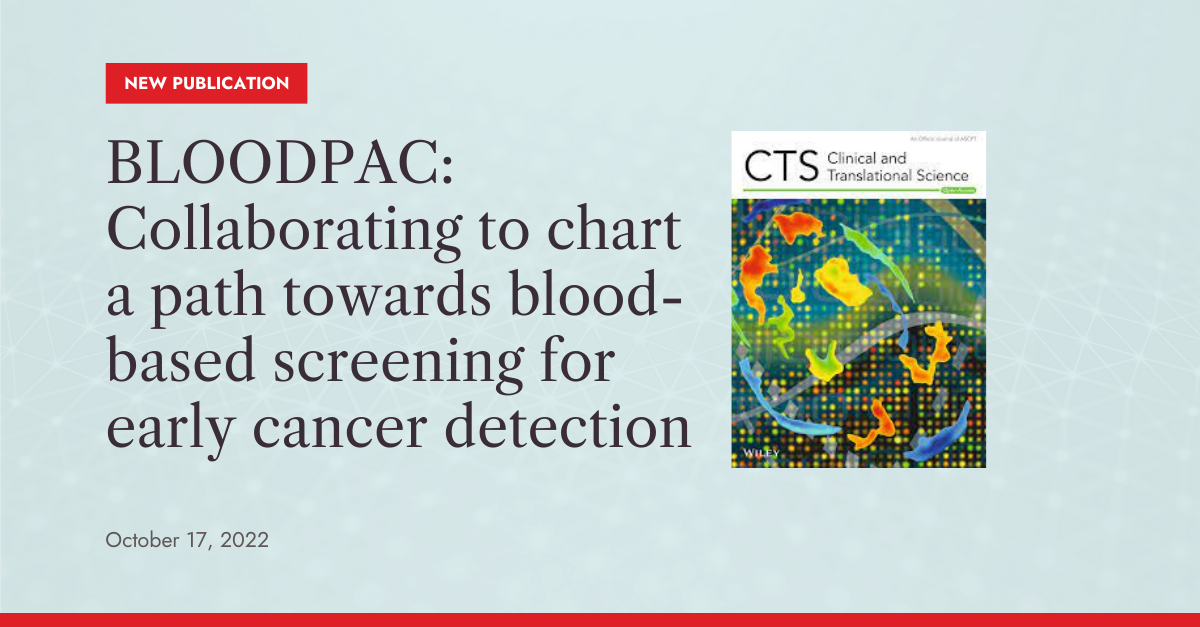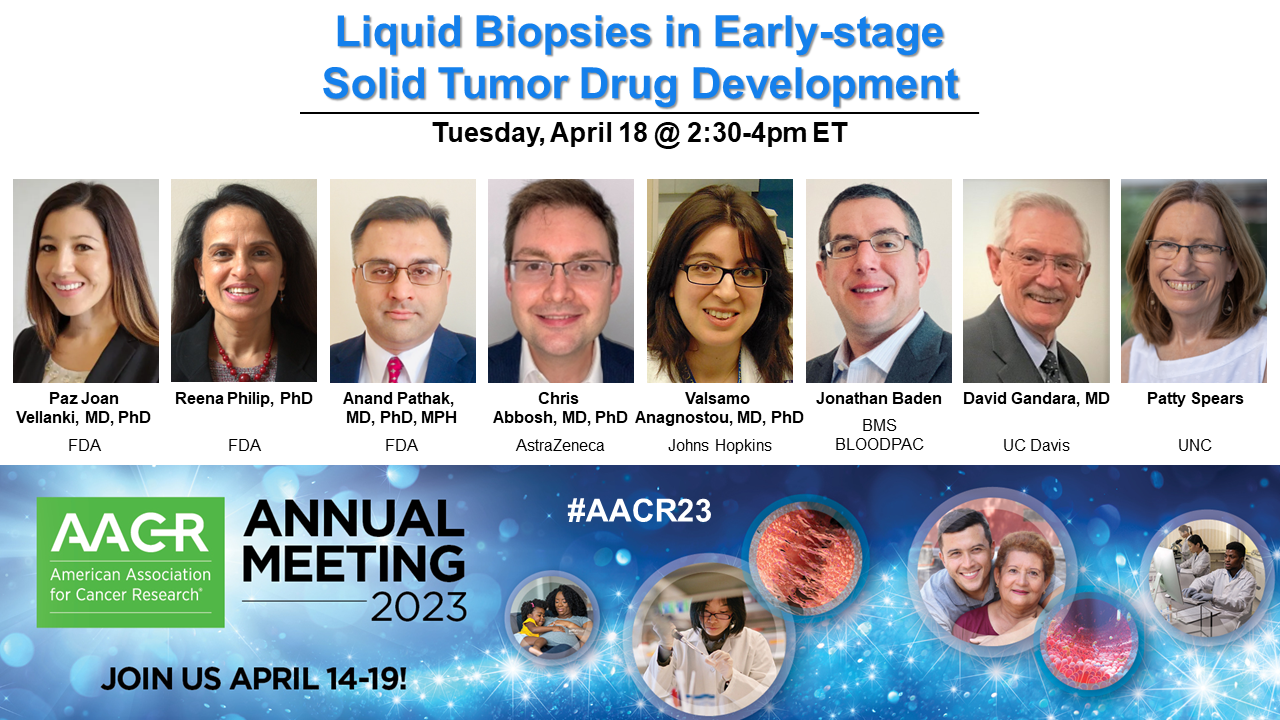BLOODPAC Quarterly Newsletter: Q1 2023
Welcome to the first edition of our quarterly newsletter!
BLOODPAC is launching this newsletter to allow our members and subscribers to stay up-to-date on our projects and initiatives, recent achievements, and upcoming events. If you have questions or comments about any of the information below, feel free to reach out to our team at info@bloodpac.org. We'd love to chat!
Winter 2023 News
Welcome to our newest members, PreAnalytiX, the Liquid Biopsy Laboratory at Massachusetts General Hospital, and the Johns Hopkins School of Medicine!
We just finished hosting our in-person Q1 meeting in Washington, DC! A big thank-you to our working group co-chairs and speakers, our colleagues on the PROMETHEUS project, and all attendees for a productive and creative meeting.
Congrats to the JFDI working group, who just published the result of their study on the use of contrived materials for comparative evaluation of liquid biopsy assays! Read the full article here
Our Early Detection and Screening working group authored a paper on the opportunities and challenges of liquid biopsy for early cancer detection! Read the full article here
BLOODPAC hosted a panel discussion at TriCon 2023 in San Diego last month—thank you to our panelists Duane Hassane (Tempus), Minetta Liu (Natera), Asaf Zviran (C2i Genomics) and Angela Silvestro (GSK)!
Upcoming Events
April 18th, 2:30--4pm ET: Jon Baden (Bristol Meyers Squib) will be representing BLOODPAC at a panel discussion at the American Association for Cancer Research (AACR) 2023 meeting.
May 3rd, 1--5pm ET: The NCI is hosting a virtual workshop for multi-cancer assay developers interested in participating in the institute’s upcoming trials and studies.
June 2nd, 9--12pm CT: Our in-person Q2 meeting will be in Chicago, IL during the American Society for Clinical Oncology (ASCO) conference.
September 6--7, 2023: Mark your calendars for our fall Q3 meeting in Omaha, Nebraska, hosted by Streck!







